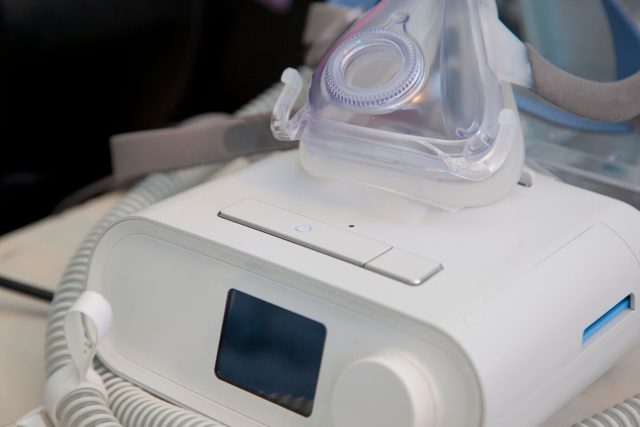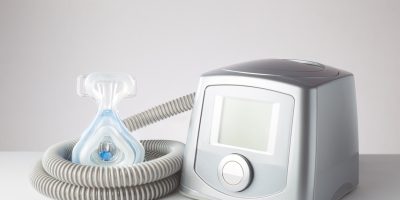Philips CPAP Recall
Philips Respironics recalled and then replaced specific CPAP, BiPAP and ventilator machines in 2021 and 2022 because of health risks from the breakdown of PE-PUR foam. The FDA issued a Class I recall in 2023 for many of the replacements related to faulty programming that can cause injury or death. In January 2024, Philips stopped selling its CPAP and BiPAP machines for sleep apnea in the United States.
- Legally reviewed by Brendan A. McDonough, Esquire
- Last update: March 7, 2025
Latest Philips CPAP Machine Recalls
The FDA issued a Class I recall in 2023 for certain Philips CPAP and other respiratory devices — this is the most serious level of recall. It was issued after an earlier 2021 recall for specific models of Philips respiratory devices. Philips reworked and replaced many of the recalled breathing machines. But these also had problems.
The 2023 recall was designated as Class I due to the risk of respiratory failure, heart failure, severe injury or death from using the replacement machines. The 2023 recall covers the replacement devices.
Philips assigned incorrect or duplicate serial numbers to many of the reworked DreamStation devices during reprogramming, which means some may not provide therapy.
-
December 2023:
Philips agreed to a $479 million reimbursement settlement for people who bought, rented or leased recalled CPAP machines between 2008 and 2021.
-
June 2023:
Between April 2021 and June 2023, the FDA received more than 100,000 medical device reports related to previously recalled Philips breathing devices, prompting the April 2023 recall.
-
April 2023:
Philips recalled more than 1,000 replacement CPAP and BiPAP machines.
-
December 2022:
The FDA released a safety bulletin warning consumers about health concerns related to certain remediated models of Philips breathing devices, the Trilogy 100 and Trilogy 200 series of ventilators.
-
November 2022:
The FDA received more than 90,000 reports concerning Philips breathing devices related to the breakdown of sound abatement foam in the devices.
-
August 2022:
Philips issued a recall of approximately 1,660 BiPAP devices because of plastic in the motor that could release toxic fumes or cause the device to stop working.
-
March 2022:
The FDA notified Philips that the company had not adequately informed affected consumers about the 2021 recall of CPAP, BiPAP and ventilator machines.
-
November 2021:
The FDA flagged a further safety issue with silicone-based foam in the Philips devices that were recalled earlier in the year. An inspector notified the FDA that Philips may have known about the issues with foam in its breathing devices as far back as 2015.
-
September 2021:
Philips initiated its repair-and-replace program covering all CPAP, BiPAP and ventilator devices recalled in 2021.
-
June 2021:
Philips issued a voluntary recall for some of its CPAP, BiPAP and ventilator models after receiving reports about disintegrating sound abatement foam in the devices.
Philips Replacements and Financial Settlement
In December 2023, Philips agreed to settle financial claims for defective machines for $479 million dollars. The settlement reimburses people who bought, rented, or leased certain machines in the U.S. between 2008 and 2021.

The settlement does not cover injuries or death caused by the machines. A separate multidistrict litigation covers those claims. As of July 2025, there were 830 individual Philips CPAP lawsuits in a Western Pennsylvania federal court.
In addition, Philips has sent out 2.46 million reworked CPAP replacement devices and repair kits, but the FDA says that the number of replacement devices is far fewer. Millions of people may have been affected by a Philips CPAP replacement shortage. If you’re waiting for a remediated device, please contact Philips for an update.
Which CPAP Machines Are Recalled?
Not all models of Philips CPAP, BiPAP and ventilators are covered by the company’s breathing device recalls in 2021, 2022 and 2023. The recall mainly affects machines from the Philips DreamStation line.
- A-Series BiPAP A30, A40, Hybrid A30 and V30 Auto
- C-Series ASV
- C-Series S/T and AVAPS
- DreamStation
- DreamStation ASV
- DreamStation Go
- DreamStation ST and AVAPS
- Dorma 400
- Dorma 500
- E30
- Garbin Plus, Aeris and LifeVent
- OmniLab Advanced+
- REMstar SE Auto
- SystemOne ASV4
- SystemOne (Q-Series)
- Trilogy 100 and Trilogy 200
In 2022, the FDA issued a Class 1 recall for magnetic CPAP and BiPAP masks. Using the masks could cause serious injury or death, and they can also interfere with metallic implants. More than 18 million units in the U.S. are impacted by the recall.
- Amara View Full Face Mask
- DreamWear Full Face Mask
- DreamWisp Nasal Mask
- Therapy Mask 3100 NC/SP
- Wisp and Wisp Pediatric Nasal Mask
The further recalls in 2023 cover models of the Philips ventilation devices named in the 2021 recall and then reworked and sent out as replacement devices. These models were incorrectly programmed and could cause injury or death.
Why Were Philips CPAP Machines Recalled?
Each of the Philips CPAP, BiPAP and ventilator recalls were for different reasons.
- 2021 Recall
- Philips devices were recalled because of disintegration and toxicity risk from the PE-PUR foam in the devices. The foam could be inhaled or swallowed during use.
- 2022 Recall
- Philips recalled an additional smaller number of models because of concerns over the toxicity of plastic parts inside the machines.
- 2023 Recall
- Philips recalled some of its models because of programming errors after the 2021 recall. Many were replacements or reworked models from the earlier recall.
From April 2021 to the 2023 recall, the FDA received over 105,000 medical device reports, including 385 death reports, linked to PE-PUR foam breakdown.
Potential Side Effects Related to the Recall
According to the U.S. Food and Drug Administration, potential side effects related to the use of the recalled equipment include asthma, dizziness, headache, hypersensitivity reaction such as an allergic reaction or another immune system reaction, inflammatory response, irritation to the airway, nausea or vomiting, and toxic or cancer-causing effects to organs.
“From a medical equipment perspective, I advise individuals who have experienced side effects to immediately stop using the recalled machine and seek alternative treatment options,” Mike Breslin, owner of ProMed Durable Medical Equipment, told Drugwatch. “But first consulting with health care providers is essential for appropriate guidance and support.”
GAO To Investigate FDA Over Lack of CPAP Warnings
In January 2024, U.S. Senators Dick Durbin (D-Ill.) and Richard Blumenthal (D-Conn.) requested the U.S. Government Accountability Office (GAO) to investigate the FDA’s oversight of medical device recalls. This followed reports of the Agency’s failure to issue warnings about replacement Philips CPAP machines.
The investigation aims to shed light on the matter and ensure that the FDA remains accountable for its actions.
Device Events CEO and former FDA analyst Madris Kinard said the FDA should do more to ensure device safety before being marketed and sold, according to ProPublica. Currently, the FDA allows device makers to win clearance for a new product simply by showing that it’s substantially equal to an existing one already on the market.
What To Do if Your Philips CPAP Machine Was Recalled
Check the Philips website to see if the recall affects your breathing device and register it for remediation. You can manage the process via the Philips Patient Portal or by calling 877-907-7508.
For details on how to remediate your Philips CPAP, BiPAP or ventilator device, check the Philips website for specific instructions based on your device series. If you have any questions, visit the Voluntary Recall section of the site.
Consult your health care provider using a recalled Philips breathing machine for any health issues. They may suggest alternatives like lifestyle changes, nasal decongestants, weight loss or sleep apnea surgery.
Consider consulting a lawyer experienced in medical device lawsuits to determine if you have a claim against Philips for the recalled CPAP, BiPAP and ventilator machines.
Philips settled a class-action lawsuit for CPAP recall in 2023. However, settlements for cancer injury claims are still pending. There are 830 Philips CPAP lawsuits consolidated in a federal MDL in Pennsylvania.
Frequently Asked Questions about Philips CPAP Recalls
Calling this number connects you with a Drugwatch.com representative. We will direct you to one of our trusted legal partners for a free case review.
Drugwatch.com's trusted legal partners support the organization's mission to keep people safe from dangerous drugs and medical devices. For more information, visit our partners page.


